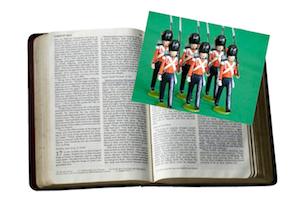 I forgot to share something that I heard from Tony Fernández a few weeks ago. He was preaching at a church in Chicago, and I was his translator. He was talking about the incident in Genesis 24 where Abraham sent his servant to find a wife for Isaac. The servant traveled back to Mesopotamia and asked God to help him in his search. He asked that a woman come to the spring where he sat and offer water to him and to his camels. Rebekah did just that, and the servant knew she was the one.
I forgot to share something that I heard from Tony Fernández a few weeks ago. He was preaching at a church in Chicago, and I was his translator. He was talking about the incident in Genesis 24 where Abraham sent his servant to find a wife for Isaac. The servant traveled back to Mesopotamia and asked God to help him in his search. He asked that a woman come to the spring where he sat and offer water to him and to his camels. Rebekah did just that, and the servant knew she was the one.
Tony pointed out that the servant had ten camels. They had just crossed the desert. Ten thirsty camels can easily drink more than 400 gallons of water.
Imagine how long it took Rebekah to draw that much water from a spring with a jar! It would have taken hours.
No wonder the servant knew that Rebekah was the one God had chosen. Not just anyone would do that. Thanks, Tony, for showing me something new in a story I’ve known most of my life.


 OK, I’m ready to start looking some at God’s people and war in the Bible. Genesis 14 seems like a good place to start, though someone may want to point out an earlier passage.
OK, I’m ready to start looking some at God’s people and war in the Bible. Genesis 14 seems like a good place to start, though someone may want to point out an earlier passage.
